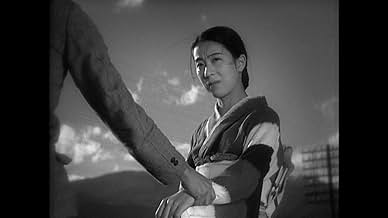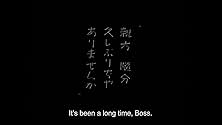VALUTAZIONE IMDb
7,6/10
3577
LA TUA VALUTAZIONE
L'amante di un attore kabuki escogita per gelosia un complotto per far cadere il figlio del suo amante.L'amante di un attore kabuki escogita per gelosia un complotto per far cadere il figlio del suo amante.L'amante di un attore kabuki escogita per gelosia un complotto per far cadere il figlio del suo amante.
- Premi
- 1 vittoria in totale
Kôji Mitsui
- Shinkichi
- (as Hideo Mitsui)
Emiko Yagumo
- Otaka
- (as Rieko Yagumo)
Chishû Ryû
- Shouting audience member
- (non citato nei titoli originali)
Trama
Lo sapevi?
- QuizA Moxa treatment refers to the burning of an herb called moxa (aka mugwort) on, or directly above, the skin. Recipients of the treatment generally didn't like the burning sensation on their skin, although this was supposed to enhance circulation and lymphatic flow. Also, the scent of moxa is believed to have a soothing, relaxing effect, which would have been important to counteract the skin irritation.
- Citazioni
Kihachi: What did you plan to do with my son?
Otaka: Who cares about your son? He's cheap, like you, playing around with actresses.
[Kihachi beats Otaka]
Otaka: Are you sorry? I hope you'll be very sorry. The world is like a lottery. You take your ups and your downs. Let's make up please. That makes us even, you see. Just think how I feel.
- Curiosità sui creditiThe film title and credits are placed before a backdrop of plain sackcloth. This would become a trademark of Yasujirô Ozu films.
- ConnessioniRemade as Erbe fluttuanti (1959)
Recensione in evidenza
This early career (1934) Yasujuro Ozu silent film is a personal favorite. A seminal work for Ozu, "A Story of Floating Weeds" is a remarkably modernist, concise film, and the story is powerfully moving. This picture is often argued as Ozu's first fully-realized, and it is an easy film to appreciate, with Ozu's quiet artistry on showcase throughout. (The patent imagery is here: laundry on lines, silent stairwells, passenger trains, hanging lights, etc.; as well as the simplistic, low-angle shooting style, resulting in a film that feels much more familiar to Ozu fans than its age would indicate. Established Ozu fans should notice some outliers, though, including realistic domestic violence and several moving dolly shots). The storyline involves a downtrodden traveling theater group, whose manager is reuninted with his estranged "nephew," (who is, in actuality, his son) and the young man's mother. What follows is a quiet, somber story of familial bonds, unrealizeable love, and the often impossible nature of personal happiness. It is also very much a film about the lower classes, whose plight is subject for this, Ozu's first metaphorical title. The "Floating Weeds" refers to duckweed, a floating plant often referenced in Japanese poetry, and it is emblematic of aimlessness, and the drifting lack of meaning in life. "A Story of Floating Weeds" is a movie about the flatsom and jetsom of Japanese society, whose destination is open to chance and whim. Perhaps equally importantly, "Floating Weeds" is a story about fathers and sons. It is timeless, fundamental stuff, and I'd argue some of Ozu's best.
- Flak_Magnet
- 9 set 2009
- Permalink
I più visti
Accedi per valutare e creare un elenco di titoli salvati per ottenere consigli personalizzati
- How long is A Story of Floating Weeds?Powered by Alexa
Dettagli
- Data di uscita
- Paese di origine
- Lingue
- Celebre anche come
- A Story of Floating Weeds
- Azienda produttrice
- Vedi altri crediti dell’azienda su IMDbPro
- Tempo di esecuzione1 ora 26 minuti
- Colore
- Mix di suoni
- Proporzioni
- 1.37 : 1
Contribuisci a questa pagina
Suggerisci una modifica o aggiungi i contenuti mancanti

Divario superiore
By what name was Storia di erbe fluttuanti (1934) officially released in India in English?
Rispondi






















